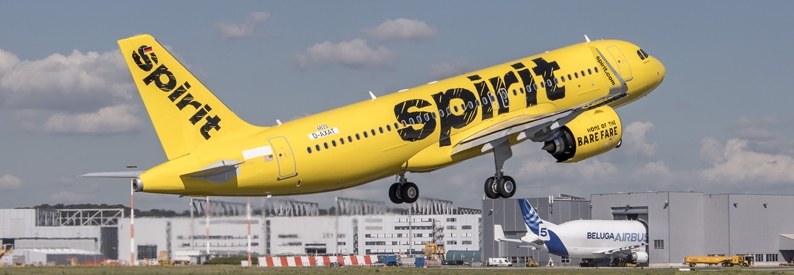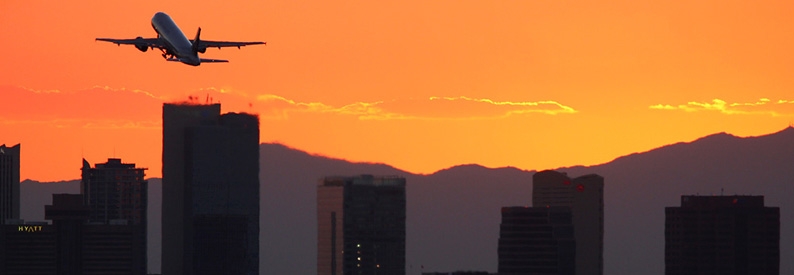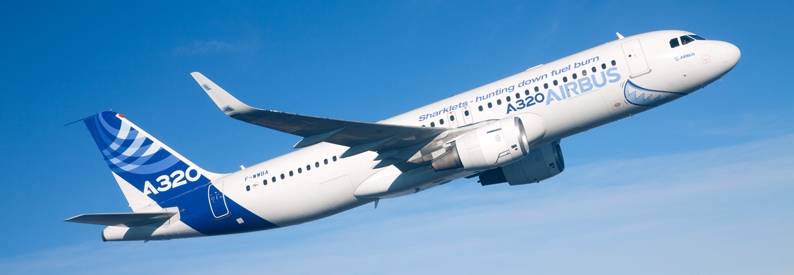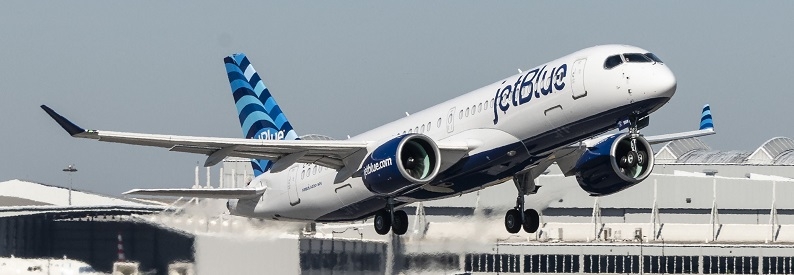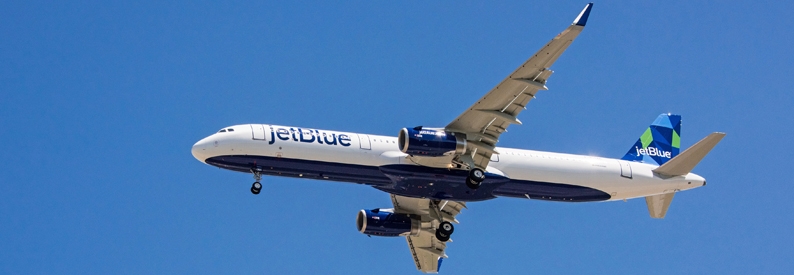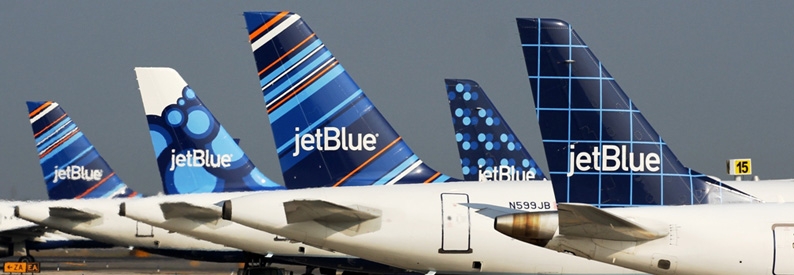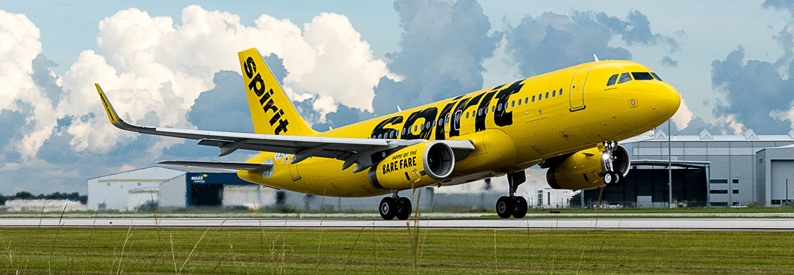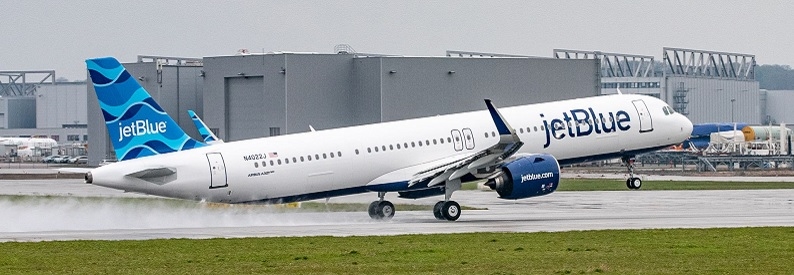JetBlue Airways (B6, New York JFK) and Spirit Airlines (NK, Fort Lauderdale International) have vowed to continue with their planned USD3.8 billion merger in spite of a lawsuit filed by the United States Department of Justice (DOJ) to block the transaction on antitrust grounds.
The lawsuit - filed on March 7, 2023, in the US District Court in Massachusetts with support from the states of Massachusetts and New York and the District of Columbia - is seen as indicative of the Biden administration’s aggressive approach to enforcing US antitrust law.
In the 43-page charge sheet, the DOJ claims the proposed merger would violate Section 7 of the antitrust Clayton Act and should be enjoined. It claims the deal would have a lasting negative impact on consumers as it would eliminate competition from Spirit Airlines as the largest and fastest-growing ultra-low-cost carrier (ULCC) in the US, resulting in the loss of about half of all ULCC seats in the industry, leaving tens of millions of travellers to face higher fares and fewer options.
It argues the merger would have anticompetitive effects on more than 150 routes affecting 30 million passengers annually, accounting for more than USD6 billion in annual revenue for all airlines. "The harm would be most directly felt on the more than 40 nonstop routes where the acquisition is presumptively illegal," the DOJ argues. "These routes touch cities in the Northeast (for example, Boston, Hartford, and New York City), typical vacation destinations in Florida (for example, Fort Myers, Miami/Fort Lauderdale, Orlando, and Tampa), as well as Los Angeles and Las Vegas further west. In addition, many routes touch destinations in the Caribbean and Latin America, where cost-conscious travellers rely on airlines as the only reasonable option to get them to their destination quickly and safely."
Examples offered were the Boston-Miami International/Fort Lauderdale International route, which serves about 1.5 million passengers annually, and where JetBlue and Spirit Airlines together currently account for nearly 50% of the market. Other included between Boston and San Juan Luis Muñoz Marin, where the two airlines account for nearly 90% of traffic; between Miami/Fort Lauderdale and Aguadilla, Puerto Rico, where the carriers are the only ones to provide nonstop service. "The elimination of competition from Spirit on these and other highly concentrated routes makes the transaction presumptively illegal. Unless enjoined, the proposed merger of JetBlue and Spirit would result in higher fares and fewer options for travellers," the DOJ claims.
Other arguments put forward include the risk that remaining airlines could coordinate to raise prices, new entry or expansion by existing competitors would not prevent harm to passengers, while purported efficiencies derived from the merger were speculative and anti-competitive, the DOJ said.
It also dismissed JetBlue and Spirit Airlines' offers to sell holdings in Boston and New York, along with some assets in Florida, in a bid to ease antitrust concerns.
"Unless enjoined, the proposed acquisition of Spirit by JetBlue may substantially lessen competition in the relevant markets in violation of Section 7 of the Clayton Act, 15 USC § 18. Among other things, JetBlue’s acquisition of Spirit would:
- eliminate current and future head-to-head competition between JetBlue and Spirit;
- lead to higher ticket prices and reduced passenger capacity;
- result in less consumer choice; and
- facilitate increased coordination among JetBlue and its remaining competitors," the charge sheet reads.
The DOJ and the plaintiff states have asked for the airlines to be "permanently enjoined and restrained from carrying out this acquisition, or any other transaction in any form that would combine JetBlue and Spirit."
Reuters reports that the US Department of Transportation (DOT) has thrown its weight behind the application, saying it fully supports the lawsuit and plans to deny an exemption application for the carriers to operate under common ownership prior to the requested transfer.
The merger - which would create the fifth largest US airline - has always been expected to face tough regulatory scrutiny in a domestic market 80% controlled by the four mainline carriers: American Airlines, United Airlines, Delta Air Lines and Southwest Airlines. The DOJ is already taking JetBlue and American Airlines to court over their so-called Northeast Alliance commercial partnership announced in July 2020.
On July 28, 2022, JetBlue and Spirit Airlines announced they had entered into a definitive merger agreement following unanimous approval by the boards of both companies. Spirit Airlines' shareholders approved the deal in October 2022. This followed a protracted bidding war for Spirit Airlines between JetBlue and Frontier Airlines (F9, Denver International), with the latter having warned the competitor's deal was unlikely to get the regulatory nod.
Reacting to the DOJ's suit, JetBlue Chief Executive Officer Robin Hayes said: “Customers deserve a competitive airline marketplace, and we will pursue this merger to ensure they get it [...]. We believe the DOJ has got it wrong on the law here and misses the point that this merger will create a national low-fare, high-quality competitor to the Big Four carriers which – thanks to their own DOJ-approved mergers – control about 80% of the US market.”
Spirit Airlines Chief Executive Officer Ted Christie said: "We disagree with the DOJ’s decision to seek to block the proposed merger, which will benefit consumers and employees. We will vigorously defend our position that a combined JetBlue and Spirit will be a game changer for customers nationwide, creating the most compelling national low-fare challenger to the dominant US carriers. Together, we intend to democratise flying for travellers across the country – a goal we believe is worthy of the government’s support."
- Type
- Base
- Aircraft
- Destinations
- Routes
- Daily Flights

